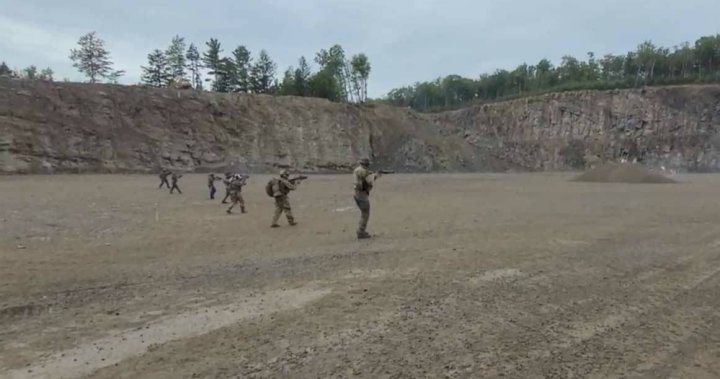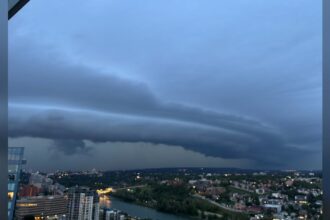In a dramatic development that has sent shockwaves through Quebec’s rural communities, the Royal Canadian Mounted Police have unveiled details of what they describe as an organized militia plot aimed at seizing land and establishing a self-governing enclave. The operation, which culminated in multiple arrests yesterday, represents one of the most significant domestic extremism cases in recent Canadian history.
The investigation, code-named “Operation Sovereign Shield,” began after authorities received intelligence about a group calling themselves the “Guardians of Heritage” allegedly stockpiling weapons and conducting paramilitary training on private property approximately 70 kilometers north of Montreal. According to RCMP Commissioner Marie Dubois, the group harbored plans to declare a 400-hectare area as independent territory, free from Canadian jurisdiction.
“What we’ve uncovered goes beyond typical anti-government rhetoric,” Commissioner Dubois stated during a press conference in Montreal. “The evidence suggests a coordinated effort to establish an armed compound with its own governance structure, legal system, and enforcement mechanisms – essentially attempting to carve out a sovereign entity within Quebec’s borders.”
The RCMP has charged seven individuals with conspiracy to commit sedition, weapons trafficking, and participating in a criminal organization. Court documents reveal the suspects, ranging in age from 32 to 67, had allegedly acquired military-style tactical gear, communication equipment, and had constructed rudimentary fortifications at multiple properties.
Quebec Premier François Legault addressed the situation, calling it “a disturbing reminder that extremist ideologies can take root anywhere.” He emphasized that “while we value diverse political discourse in our democracy, attempts to undermine the rule of law through violence or intimidation will never be tolerated in Quebec or anywhere in Canada.”
The investigation has raised significant concerns about the rise of anti-government militias in Canada. Security experts point to similar movements in rural areas across North America, fueled by conspiracy theories, economic anxieties, and cultural grievances that have intensified in recent years.
Dr. Elise Tremblay, a researcher specializing in domestic extremism at McGill University, notes this case exhibits troubling sophistication. “What makes this particularly concerning is the level of organization and operational security the group maintained. They weren’t merely discussing theoretical resistance – they were actively preparing for what they viewed as an inevitable confrontation with authorities.”
Federal Public Safety Minister Marco Mendicino confirmed that national security agencies have been monitoring similar groups across Canada. “This is not an isolated incident,” Mendicino stated. “We’re seeing concerning patterns of radicalization in certain communities, often accelerated by online networks that connect domestic extremists with international counterparts.”
Local residents expressed shock at the arrests, many claiming they had noticed unusual activity but never suspected the extent of the alleged plot. Marie Bouchard, who owns property adjacent to one of the seized locations, told CO24 News: “There was increased traffic on the back roads, and sometimes you’d hear what sounded like gunfire, but we assumed it was just hunting. To think they were planning something like this is terrifying.”
Court documents suggest the group had established communication with similar organizations in other provinces and internationally, raising questions about wider networks. Intelligence sources indicate that materials recovered during the raids included detailed plans for disrupting critical infrastructure and establishing “defensive perimeters” against law enforcement intervention.
The RCMP confirmed that financial investigators are examining suspicious transaction patterns that may have funded the group’s activities, including cryptocurrency transfers from foreign sources. This revelation has prompted calls for enhanced monitoring of extremist financing channels.
Legal experts anticipate a complex prosecution, with defense attorneys already challenging the constitutionality of some surveillance methods used in the investigation. Civil liberties groups have urged caution to ensure due process while acknowledging the serious nature of the allegations.
As Canada grapples with this unsettling case, questions emerge about the balance between security vigilance and respect for political diversity. In an increasingly polarized climate, how can democratic societies effectively counter extremist movements while preserving the very freedoms that define our national character?










